33 products







- White Wine
- Chenin Blanc
- Sustainable
- Dry
- Medium Bodied
- 750ml
- 12.97% alc./vol
About the Winery
Pearce Family Wines

In the early 2000's Nicholas Pearce was exposed to the garagiste movement in Bordeaux and was particularly inspired by négociants like Jean Luc Thunevin (Saint Emilion), James Sichel (Margaux) and Nicolas Potel (Beaune) from Burgundy.
After returning home to Ontario and starting his own wine company, he has had a hand in making 10+ wines in two hemispheres, 3 countries and 5 different appellations since the 2013 vintage.
Pearce Predhomme

Pearce Predhomme is a collaboration of like-minded individuals from around the globe. Founded with a mission to build and import wines from our favourite appellations while offering an unequaled value/quality ratio for the sommeliers & wine buyers in Ontario. This is a project between Toronto Sommelier and entrepreneur Will Predhomme and Ontario wine importer Nicholas Pearce. They have partnered with Radford Dale in South Africa and NorthWest Wine Co. in Oregon to create these special cuvées.
Press Reviews
Platter Wine Guide 2026
4.5 Stars (91/100)
Remarkably generous & forthcoming at modest 12.5% alcohol, 2024 layered stonefruit & sweet citrus swathed in rich, creamy lees. Hints vanilla & nutmeg, nicely integrated, attest to 9 months in seasoned barrels.
- Sparkling Wine
- Chardonnay
- Sustainable, Vegan-Friendly
- Dry
- Medium Bodied
- 750ml
- 12.00% alc./vol
About the Winery
Domaine Baud Père et Fils

The history of Domaine Baud dates back to 1742, and it wasn't until 1950 when René Baud, the 7th generation, rebuilt the vineyard which had suffered from the phylloxera crisis and two World Wars.
Starting with only 4 hectares, the vineyard progressively expanded to 20 hectares with the help of successive generations. Now, managed by siblings Clémentine and Bastien, the 9th generation, the estate continues to flourish and grow, with a strong commitment to sustainable viticulture and preserving the traditions and style that makes the wines of the Jura so unique and incredible.
The estate achieved the Terra Vitis certification in 2014 for its eco-friendly work and environmental preservation.
Press Reviews
Wine Align
92 points - David Lawrason
This is a very tasty, rich, golden hued, well aged chardonnay-based sparkler with an involved nose of cashew, baked apple, nougat and honey. It is almost creamy in texture with fine mousse and very good acidity providing counterpoint. There is pleasant nutty bitterness on the finish; length is excellent.
91 points - Michael Godel
Varietal chardonnay that sees a year of lees aging with a dosage to reach the desired Brut. A richness and also dried herbal notes plus fennel that is offset by a creamy sweetness melting and melded through the pictorial texture of a wine so sharp and yet so soft. One imagines the Baud family being led by such humans and when a wine acts as an expression of they, well isn’t that the point in a wine like this? Drink 2022-2024. Tasted July 2022.
Baud’s Crémant is made in true Blanc de Blancs style, from 100 per cent chardonnay and though faintly if beautifully oxidative, the cuvée pulses with great energy. The scents of fraying ginger batons, scraped orange skin and baking almond cookies are all a treat for the olfactory. Just enough but not too much sweetness fleshes the the body to get down to density in mouthfeel but never abandons its airy character. A terrific Champagne alternative that was disgorged in October of 2017. Drink 2018-2022. Tasted April 2018.
Treve Ring
91 points
This family estate dates back to 1742, but it wasn't until 1950 when René Baud, 7th generation, rebuilt the vineyards, expanding from 4 hectares into 20 hectares over the years. Today the estate is managed by siblings Clémentine and Bastien, 9th generation. This sustainably farmed chardonnay is rooted in the Jura's marl and limestone soils and was fermented in stainless before a year on lees before disgorgement and release. Green apple, white florals, oyster shells, meadow herbs, meringue run the bright, sleek palate, with a bed of creamy lees. There's a lovely streaming anise note that leads to a lengthy finish. Drinking beautifully now, but will hold over the next couple years easy.
- Red Wine
- Cinsault, Syrah
- Sustainable, Vegan-Friendly
- Dry
- Light Bodied
- 750ml
- 12.5% alc./vol
About the Winery
Pearce Family Wines

In the early 2000's Nicholas Pearce was exposed to the garagiste movement in Bordeaux and was particularly inspired by négociants like Jean Luc Thunevin (Saint Emilion), James Sichel (Margaux) and Nicolas Potel (Beaune) from Burgundy.
After returning home to Ontario and starting his own wine company, he has had a hand in making 10+ wines in two hemispheres, 3 countries and 5 different appellations since the 2013 vintage.
Pearce Predhomme

Pearce Predhomme is a collaboration of like-minded individuals from around the globe. Founded with a mission to build and import wines from our favourite appellations while offering an unequaled value/quality ratio for the sommeliers & wine buyers in Ontario. This is a project between Toronto Sommelier and entrepreneur Will Predhomme and Ontario wine importer Nicholas Pearce. They have partnered with Radford Dale in South Africa and NorthWest Wine Co. in Oregon to create these special cuvées.
Press Reviews
Platter Wine Guide 2026
4.5 Stars (90/100)
These are collaborations with Canadian sommeliers. Supple & juicy, 2023 67% wholebunch carbonic maceration cinsault, shows variety’s fragrance & charm; conventional ferment syrah, supplies heft. Tannins rounded 9 months in older oak.
- Red Wine
- Pinot Noir
- Sustainable
- Dry
- Medium Bodied
- 750ml
- 13% alc./vol
About the Winery
Groupe Bellene
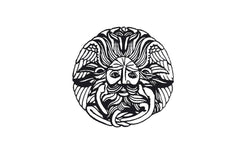
Led by Nicolas Potel in Beaune, Groupe Bellene is composed of the négociant arm Maison Roche de Bellene, the winery arm Domaine de Bellene, and a special back-vintage series under the Collection Bellenum label.
- Maison Roche de Bellene offers a complete range of wines, with an emphasis on individual terroirs from old vines of more than 40 years. All of the growers that Nicolas works with are either organic certified or sustainably farmed.
- Domaine de Bellene represents the wines that are produced and bottled from Nicolas Potel's private vineyard holdings.
- Collection Bellenum is a back vintage series that Nicolas Potel sourced from his friends in the region, offering a magnificent selection of bottled history. The wines have moved only twice in their lives, from the original cellar to Potel's and now to yours!
Nicolas Potel grew up at Volnay's Domaine Pousse d'Or, where his father worked. He trained abroad and returned home in 1996 to build a négociant business and started Maison Nicolas Potel, where he sourced grapes from good parcels, often working with the growers to improve the quality. By 2002, he was making 120 wines from 50 different appellations, and the rest is history!
Press Reviews
Wine Align
90 points - Megha Jandhyala, S.J.D
This is a solid entry-level Bourgogne pinot noir - supple and juicy, brimming with flavours of dark cherries and underbrush, alongside notes of toasted spice and a hint of cured meat. Tannins are ripe and rounded; acids provide just enough lift. The finish is long, ending on a pleasantly herbal note. Tasted March 2025.
90 points - Michael Godel
Nothing quite like a “normal” year to craft the most getable and crushable Bourgogne at the behest and passionate hands of Nicolas Potel. Old vines are in the 45 to 50 year range in highest of high density plantings harvested at a “normal” time in this post-modernist, climate adjusted period. That being the 5th to the 13th of September and fruit already ripe, burning the brix and phenol candle at both ends. Nose in to the promise of violets and roses, dive in for crunchy red fruit and some pretty solid tannins. That early yet necessary pick preserved acids with much to say in a pinot noir as tart and spirited as it is enriching of spirit. Despite the high drink-ability factor the structural parts creep up so wait a year for this to settle further. Drink 2022-2025. Tasted June 2021.
90 points - Sara d'Amato
Lovely, bright, crunchy and lively, this entry level Bourgogne from Roche de Bellene rarely disappoints. With a fine, elegant, and well-integrated oak treatment and an invitingly silky texture, this pinot noir is notably compelling and delivers solid value. Excellent length. Tasted June 2021.
- White Wine
- Marsanne
- Organic, Sustainable, Vegan-Friendly
- Dry
- Full Bodied
- 750ml
- 13.20% alc./vol
About the Winery
Mas Carlot

Mas Carlot is situated in the south of the Rhône Valley, extending across 76 hectares of pebbly land southeast of Nîmes. Originally a 17th century farm, this beautiful estate was resurrected in the 1960's by the Blanc family—it is currently run Cyril Mares of the neighbouring and equally reputable property, Mas Bressades.
The appellation of Costières de Nîmes used to be considered part of eastern Languedoc but the climate, soil, topography and wine are far closer to those just over the river in the Southern Côtes du Rhône. It is now a region very much on the up and is widely recognized as a great source of excellent value wine.
Press Reviews
Wine Align
91 points - John Szabo, MS
Good volume and fruity depth here on this southern Rhône from Mas Carlot, richly flavoured, properly sapid, and saliva-inducing. I like the broad and rich palate, the long finish. White-fleshed orchard fruit leads and lingers. Top notch, and lovely. Tasted January 2024.
90 points - Megha Jandhyala
This golden southern Rhône blend is charmingly ripe and fleshy, even comforting, with notes of apples, tangerines, lychee, and toasted bread. The palate is mellifluous and pleasantly full, with a satin silk-like richness and juicy acids. The finish is gently warming, faintly bitter, and delicately textured. Tasted January 2024.
- White Wine
- Albarín
- Sustainable, Vegan-Friendly
- Dry
- Medium Bodied
- 750ml
- 13% alc./vol
About the Winery
Bodegas y Viñedos Pardevalles
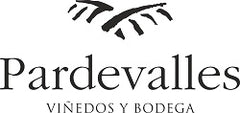 Pardevalles is recognized for being one of the driving forces behind the D.O Tierra de León, betting on the development of the indigenous grape varieties Prieto Picudo and Albarín Blanco. In 1949 Rafael Alonso founded Pardevalles continuing with the family tradition of growing grapes and making wine. The winemaking tradition in León goes back more than 400 years, famous for its centuries-old caves where wine was originally made.
Pardevalles is recognized for being one of the driving forces behind the D.O Tierra de León, betting on the development of the indigenous grape varieties Prieto Picudo and Albarín Blanco. In 1949 Rafael Alonso founded Pardevalles continuing with the family tradition of growing grapes and making wine. The winemaking tradition in León goes back more than 400 years, famous for its centuries-old caves where wine was originally made.The vineyards of Pardevalles are located between 750 and 820 metres above sea level, in an area with a Continental climate. They grow in poor, rocky alluvial soils which helps maintain the freshness in the wines. The philosophy of the Estate is grounded in making wines which express the character and identity of their origin, with a deep respect for the earth and the indigenous varieties of grape, combining tradition, innovation, and hard work.
Press Reviews
Decanter
92 points - World Wine Awards
- White Wine
- Chardonnay
- Sustainable, Vegan-Friendly
- Dry
- Medium Bodied
- 750ml
- 12.5% alc./vol
About the Winery
Domaine de Mauperthuis

A family estate created by Marie-Noëlle & Laurent Ternynck, Domaine de Mauperthuis is located in Prehy, near the town of Chablis. Their wines express the terroir of this amazing region and the vineyards are currently undergoing the transition to organic. Domaine de Mauperthuis covers around twenty hectares of vineyards around Chablis. The estate, in the Burgundy appellation, is planted in Chardonnay, Pinot Noir, Sauvignon and César, on land facing south, benefiting from exceptional sunshine.
Press Reviews
Wine Align
91 points (2020) - David Lawrason
This is a quite rich, slightly oxidative style of unoaked chardonnay with pale golden colour and a ripe nose of baked apple. Peach pie, toasty lees and vague nuttiness. It is medium weight, smooth and almost creamy with fine acidity and mineral underpinning. The length is excellent. Tasted June 2022
- White Wine
- Chardonnay
- Sustainable, Vegan-Friendly
- Dry
- Light Bodied
- 750ml
- 12.2% alc./vol
About the Winery
Pearce Family Wines

In the early 2000's Nicholas Pearce was exposed to the garagiste movement in Bordeaux and was particularly inspired by négociants like Jean Luc Thunevin (Saint Emilion), James Sichel (Margaux) and Nicolas Potel (Beaune) from Burgundy.
After returning home to Ontario and starting his own wine company, he has had a hand in making 10+ wines in two hemispheres, 3 countries and 5 different appellations since the 2013 vintage.
Press Reviews
Wine Align
91 points - Megha Jandhyala
This is a firm, flavourful, and elegant chardonnay, made with fruit that were organically, bio-dynamically, and sustainably grown. I like the balance between crunchy orchard fruit and juicy lemons, on the one hand, and finely-integrated notes of spice and toast on the other. It feels rounded and silky on the palate, lifted by taut acidity. The finish is long-lasting, leaving subtle salinity in its wake. Tasted April 2023 by Critic Understudy Megha Jandhyala.
90 points - David Lawrason
This is a very fine, quite elegant chardonnay that over-delivers for $25. There is a sense of sophistication here.The nose is generous and clean with very well integrated peach/pear, subtle toast, spice and lees. It is mid-weight, polished and very well balanced, with some minerality on the finish. Tasted April 2023.
- Sparkling Wine
- Chardonnay, Pinot Noir
- Sustainable, Vegan-Friendly
- Medium Bodied
- 750ml
- 12% alc./vol
About the Winery
Champagne Fresne Ducret
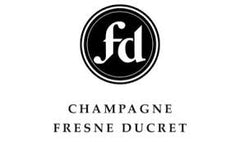
Fresne-Ducret is rich in family history and has been rooted in the premier cru village of Villedommange since the mid 1800s. Originally growing grapes for the big champagne houses, it wasn’t until the end of the second world war that the family decided to make their own wine. The tradition carries on today with Pierre Fresne and his wife Daniella (an Oakville ex-pat). Their philosophy is to produce wines that best exemplify the terroir of Villedommange, and they do this with sustainability in mind.
In 2014, Pierre Fresne embarked on a new adventure by creating a limited series of champagnes based on his desire for experimentation. Since then, he has produced one or two of these wines each year. Each are unique, according to his wishes and the profile of the vintage. This unique collection is called Arquémie, the term for alchemy in the Middle Ages. In 2018 Pierre began converting the vineyards to organic viticulture, and 2021 will be their first organic certified vintage.
Press Reviews
Wine Align
96 points - David Lawrason
This has a very intriguing, generous nose of macaroon (coconut), straw, dried apple, toast and almond/hazelnut. Also a lovely sense of sweet nut fudge. It is medium bodied with fulsome flavour, riveting acidity and all kinds of Champagne minerality. Great focus and length here. Wow! Tasted October 2020
93 points - John Szabo
Fresne Ducret's latest release of this premier cru "Chemin du Chemin champagne is a characteristically smoky and savoury, toasty and biscuity, mature champagne in the English style, balanced and savoury. I really like the developed, mature profile here, the great length. This is very good champagne ready to go. Tasted October 2020.
93 points - Michael Godel
When richness, yeasty and warm toasted brioche get together in Champagne the effect is comforting and potentially hypnotizing. From the Premier Cru village of Villedommange dating back to the mid 1800s, the pedigree is noted and the 48 months of lees aging a coup for creating both a creamy and a revitalizing Champagne. There is an oxidative aspect here and it's effectualness is one that imagines exotic spice cupboards, masala mixes and gingery tisanes. Quite the exotic bubble, lightly frothy, elegantly styled, complex and fine. Drink 2020-2026. Tasted October 2020.
Wine Enthusiast
94 points
This Champagne shows some fine maturity. A blend based on the 2014 vintage, it now has toastiness while keeping intense freshness. Acidity and touches of minerality come through the spiciness. Drink now.
- White Wine
- Pinot Grigio
- Sustainable, Vegan-Friendly
- Dry
- Light Bodied
- 750ml
- 13% alc./vol
About the Winery
Vitas
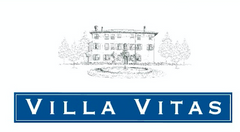
The Vitas Winery has been in the family since 1935, for four generations. It is located in the wine-producing area of DOC Friuli Aquileia, on a clayey-marly and sandy-calcareous soil (the so-called Magredi), one of the ingredients which, together with the influence of the sea and a friendly sun, create a perfect microclimate for vine-growing. A lot of importance is placed on conserving the environment and they use methods that protect their natural resources and the surrounding environment
- White Wine
- Piquepoul Blanc
- Sustainable
- Dry
- Light Bodied
- 750ml
- 13.5% alc./vol
- Rosé Wine
- Prieto Picudo
- Sustainable, Vegan-Friendly
- Dry
- Medium Bodied
- 750ml
- 13.5% alc./vol
About the Winery
Bodegas y Viñedos Pardevalles
 Pardevalles is recognized for being one of the driving forces behind the D.O Tierra de León, betting on the development of the indigenous grape varieties Prieto Picudo and Albarín Blanco. In 1949 Rafael Alonso founded Pardevalles continuing with the family tradition of growing grapes and making wine. The winemaking tradition in León goes back more than 400 years, famous for its centuries-old caves where wine was originally made.
Pardevalles is recognized for being one of the driving forces behind the D.O Tierra de León, betting on the development of the indigenous grape varieties Prieto Picudo and Albarín Blanco. In 1949 Rafael Alonso founded Pardevalles continuing with the family tradition of growing grapes and making wine. The winemaking tradition in León goes back more than 400 years, famous for its centuries-old caves where wine was originally made.The vineyards of Pardevalles are located between 750 and 820 metres above sea level, in an area with a Continental climate. They grow in poor, rocky alluvial soils which helps maintain the freshness in the wines. The philosophy of the Estate is grounded in making wines which express the character and identity of their origin, with a deep respect for the earth and the indigenous varieties of grape, combining tradition, innovation, and hard work.
Press Reviews
WineAlign
90 points - Sara d'Amato
Pours a luminous, deep pink, this rosada from Leon is made entirely of the indigenous prieto picudo grape, more typically a blending variety with dark skins and often resulting in wines with licorice-tinged black and red fruit. With youthful exuberance and potency, this salty and succulent expression features a wealth of lightly candied red berries, slippery tannins and a touch of welcome bitterness that contributes balance and a sensation of freshness. Best to enjoy in its youthful condition but it has the concentration for another year or two of aging. Tasted February 2024.
- País
- Sustainable
- Dry
- Medium Bodied
- 750ml
- 13% alc./vol
About the Winery
Garage Wine Co.

Garage Wine was literally started in a garage in 2001, by Etobicoke expat Derek Mossman and his wife Pilar Miranda. Since then, the dynamic duo handcraft wines from a series of individual vineyards located in the Maule and Itata Valleys, in the south of Santiago, Chile.
Garage Wine Co makes wines from a series of individual parcels, small lots / bottlings of 8-22 barrels that include a series of dry-farmed field-blends of Carignan, Garnacha, Monastrell, País, Cinsault and Cab Franc grown on pre-phylloxera rootstock with small farmers in the Maule and Itata. Each wine is from a 1-2 hectare parcel in a different place.
Over the years working in the community they have raised a veritable posse of vineyard hands whose skills are working the vineyards the old way / the traditional way– originario. The vineyards are on the old coastal range of mountains closer to the Pacific and have granitic soils with cracks for roots to get deep down into.
When GWCo. speaks of the provenance of these wines they mean more than just the geological terroir. Derek and Pilar think the farming practices that have evolved over generations have as much to do with the wines’ personalities as the soils. All the wines are made by hand with native yeasts in small tanks, punched down manually and pressed out in a small basket press. GWCo is still very much a DIY operation and we still tow much of the crop back to the winery in trailers behind trusty pickup trucks 2,000 kilos at a time.
Press Reviews
WineAlign
91 points (2021) - Michael Godel
The 2018 país was, and I quote Garage Wine Company founder (and Oakvillean) Derek Mossman Knapp ”A wine that rose from the 2017 bush fires, quickly having ascended out of the ashes as something resurrected and reinvented.” The method is pressing whole clusters with stems and a co-fermented (2018) collection of país, stacked with carinena, one on top of the other. Now in 2021 it’s all about the mission grape, survivor and revivalist, the stacks of fruit like lyrics, on repeat. If you say the mantra often enough it becomes bible and this grape made in this way is the lifeblood and soul of Chile’s Secano Interior Cauquenes. A very instrumental red wine, comfortable, of relaxed warmth and lack of pressure that you would only expect at home, with people you love. “People can you feel it? Love is everywhere.” Drink 2023-2026. Tasted February 2023.
90 points (2021) - Megha Jandhyala
Born during the pandemic, the Garage Wine Company’s old-vine project is devoted to reviving previously-neglected old vines and supporting local farming communities. Founded by Mossman Knapp and Pilar Miranda, it is based in Maule, home to many dry-farmed, family-owned, old vineyards. Only about 5000 bottles of this old-vine país were made using traditional methods, including traditional dry-farming and hand-harvesting in the vineyards, and manual punchdowns and native yeast in the winery. It is a fresh, light, cheerfully fruity, wine, clean and uncluttered, with a down-to-earth, guileless charm. Red berries and herbs are joined by notes of pepper and wildflowers. The palate is medium-bodied and soft, with fine tannins, tart acids, and very good length.
- White Wine
- Olaszrizling, Pinot Gris, Riesling, Sauvignon Blanc
- Organic, Sustainable, Vegan-Friendly, Volcanic
- Light Bodied
- 750ml
- 12% alc./vol
About the Winery
Gilvesy Pincészet
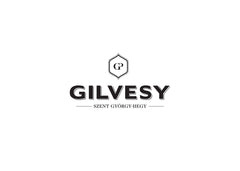
Hungarian expat Róbert Gilvesy moved back to his homeland from Canada, and began building the Gilvesy winemaking empire on the former Esterházy estate on Szent György Hill. Thanks to years of hard work, the Hegymagas-based facility now includes a modern building complex and about 13 hectares of vineyards, in addition to being the home of the family. The area is shaped by 6 million years old volcanoes, where indigenous and international varieties grow organically.
Robert’s absolute admiration for nature and the terroir translates into an immense respect for the environment. By farming using organic practices, the soils and the vines stay healthy. In the winery, by letting nature take its course without controlling the processes, and using local resources, such as Hungarian oak barrels, Gilvesy promotes and protects the Balaton region.
Press Reviews
Wine Align
91 points (2021) - Michael Godel
The blend in 2021 is olaszrizling (a.k.a. welschriesling), riesling and sauvignon blanc with pinot gris no longer involved. No doubt a botanical aspect ups the complexity game away and beyond the simple norms of white blends marked by citrus and stone fruit. They are in the mix but the herbal tonic and fine bitters elevate the cuvée to speak rightly and spritely for Balaton, the Szent György Hill and Robert Gilvesy’s oeuvre. This wine is an institution now and deserves plenty of attention. Drink 2023-2026. Tasted March 2023.
91 points (2021) - Megha Jandhyala
Situated near an ancient dormant volcano, Gilvesy grows native grape varieties organically and sustainably in volcanic soils. This blend of olaszrizling, pinot gris, riesling, and sauvignon blanc is subtly reductive and mineral, with notes of freshly cut-grass, juicy grapefruits and lemons, peaches, and crunchy pears. It feels fleshy and rounded, but refreshing on the palate, with a long, pleasantly grippy finish. I like the layers of flavours here and the succulent texture. This wine is ready to drink and vegan-friendly. Tasted March 2023.
90 points (2021) - John Szabo, MS
Gilvesy's 2021 Balatoni cuvee is the customary blend of welschriesling, riesling and sauvignon blanc, crafted in an appealingly reductive, grapefruit pith and peel-inflected style, tightly wound and bone dry, mineral and fresh. I love the saltiness on the palate and the succulent acids that draw additional sips. Crunchy, fresh, lively, drinking now or hold short term. Tasted March 2023.
- Red Wine
- Listán Negro
- Sustainable, Vegan-Friendly, Volcanic
- Dry
- Medium Bodied
- 750ml
- 13.5% alc./vol
About the Winery
Viñátigo

Juan Jesús is a proud native of Tenerife and the fourth generation of growers. During the thirty years that he's overseen Bodegas Viñátigo, he has considerably increased its holdings, planting varieties that he and his team recuperated from near extinction.
Driven by passion and love for his homeland, Juan decided to revive and work to save the native grape varieties that were brought to the Canary Islands by the conquers back in the 15th century and that had survived on the islands for centuries. He is a hero of contemporary Canarian viticulture. The wealth of knowledge that his work has created has helped underpin the significant expansion of wine styles that are now available throughout the archipelago, and his wines have achieved a calibre of class that many doubted the Canaries would ever produce again. (The Epic Wines of the Canary Islands, written by Santo Bains).
Press Reviews
Wine Align
92 points - Sara d'Amato
A volcanic gem from the sub-tropical Atlantic outpost of Tenerife, this listán negro erupts with flavour and personality. It hints at a touch of carbonic maceration—its juicy, vibrant fruit leaping from the glass. A mere three months in barrique lends a whisper of spice to the naturally derived aromas of white pepper, licorice root, and wild juniper teasing the nose. The palate is plush and lively, with silky tannins, a salty snap, and a refreshing lift that keeps you coming back. Sustainably crafted and ready to pour—ideally just below room temperature. An engaging sip from a singular terroir. Tasted May 2025.
91 points - Michael Godel
A varietal listán negro with its acidity over tannin and ability to mix fruit with the intangibles created by a relationship with volcanic soils. There are no grapes that scent like listán negro while here staying pure, clean and without idiosyncratic behaviour. Viñátigo travels the experienced and philanthropic road to gift a prime and accessible example that is simply a joy to drink. Use this open to market level red in much the same way you might gamay or frappato but also know you have something of fun, joy and excitement in your glass. Crunchy or "crujiente" as they say, ideal for Korean fried chicken tacos or something more appropriately local like papas arrugadas. Drink 2025-2028. Tasted May 2025.
91 points - John Szabo, MS
The latest release from Viñatigo's pre-phylloxera, own-rooted listán negro vines planted on the north side of Tenerife at up 1000m on the slopes of El Teide Volcano is a wonderfully savoury and perfumed wine, with typically wild, lightly desiccated red berry fruit, dried earth, resinous herbs and faded flowers, with a smoky, tea leaf undertow, complex and intriguing. The palate is also typically smooth and medium-bodied (13.5% alcohol declared), with finely sanded tannins and balanced acids, supple and highly drinkable. I'd suggest enjoying over the near term with a gentle chill - it's not a wine that needs time in the cellar. Tasted May 2025.
90 points - David Lawrason
Listan Negro is the primary red grape of the Canary Islands, growing in volcanic soils at about 500 metres. The nose is fairly generous with cranberry/sour cherry fruit, red rose florals and spices. It is medium weight, juicy and fresh with some drying tannin. You can almost taste the slightly acrid character of the soil on the finish of this wine. The length is very good to excellent. Tasted May 2025
- Sparkling Wine
- Lambrusco di Sorbara, Pinot Nero
- Natural, Sustainable
- Light Bodied
- 750ml
- 11% alc./vol
- Red Wine
- Pinot Noir, Trousseau
- Sustainable, Vegan-Friendly
- Dry
- Residual Sugar: 2 g/l
- Medium Bodied
- 750ml
- 13.00% alc./vol
About the Winery
Domaine Baud Père et Fils

The history of Domaine Baud dates back to 1742, and it wasn't until 1950 when René Baud, the 7th generation, rebuilt the vineyard which had suffered from the phylloxera crisis and two World Wars.
Starting with only 4 hectares, the vineyard progressively expanded to 20 hectares with the help of successive generations. Now, managed by siblings Clémentine and Bastien, the 9th generation, the estate continues to flourish and grow, with a strong commitment to sustainable viticulture and preserving the traditions and style that makes the wines of the Jura so unique and incredible.
The estate achieved the Terra Vitis certification in 2014 for its eco-friendly work and environmental preservation.
- White Wine
- Pinot Bianco
- Sustainable
- Dry
- Light Bodied
- 750ml
- 13% alc./vol
About the Winery
Kellerei Bozen - Cantina Bolzano
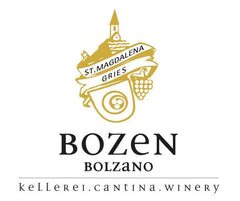
Nature’s gifts must be employed with respect and understanding.
The Cantina Bolzano winegrowers have a strong focus on near-natural methods and sustainably managed vineyards. They are committed to treating the soils and vines with the greatest care. In a slow process of maturation the best results are achieved with expert helping hands: daily inspection of the vines, thoughtful pruning, careful thinning – all the little jobs that lay the foundation for a top-quality harvest. For a unique quality wine, time is all important. During months of passionate dedication on the part of our winegrowers, top quality grapes ripen in the generous sun of Alto Adige. After the harvest in autumn, the grapes are brought in and sensitive vinification begins under the watchful eye of our winemaker Stephan Filippi and his team.
With long years of experience in winemaking and a passion for the product, he creates unique and distinctive quality wines. Subtle wines that are full of character and very much in keeping with the spirit of the times.
The many accolades and awards won by the wines of Cantina Bolzano are due in no small part to Stephan Filippi’s intuitive relationship with wine and his commitment to excellence.
Kellerei Bozen - Cantine Bolzano

Cantina Bolzano, based in the town of Bolzano, traces its roots to two of Alto Adige’s most historic cooperatives: Santa Magdalena, est. 1930 and Cantina Gries, est. 1908. After deciding to merge in 2001, Cantina Bolzano was created. Bolzano is located in the middle of a valley basin surrounded by hilly vineyards that grow from 200 meters above sea level up to 1000. North and south meet in this valley, and the sun warms the stony soils with its pronounced diurnal temperatures, protecting the vines from the cold.
The average growers’ plots in Sudtirol averages only approx. 1 hectare, and the area, with its famed reputation and steep slopes, is an expensive area to farm. The member of Bolzano (approx. 300 in all) own many of the best vineyards throughout the region, including the Valle Isarco, and pool their resources to create top quality wines. And while no grower is certified organic, many practice organic viticulture and all of them adhere to natural practices in their vineyards. Most growers have lived on their farms with their families for generations. They protect their land and cultivate their vineyards as they have done for generations with total respect of the environment where they live.
Press Reviews
Wine Align
91 points - Michael Godel
Yet another stellar pinot bianco from the collective Bozen collection to present one of the better global white wine alternatives. Not for Alto Adige mind you, but there is a world out there that knows so little about the grape and here would be the place to begin a new and exciting varietal journey. Tart and at its high moments also bracing, lime spritzing here and there, fruit pungency and intensity running amok and frankly everywhere. Pulse, energy and vitality, almost as if you can here the crackling, like ice on the coldest of days. Cool climate pinot bianco rocks. Drink 2024-2026. Tasted August 2024.
90 points - Megha Jandhyala
This is a delightfully engaging pinot bianco, with clear, bright notes of golden currants, peaches, apricots, and jasmine blossoms. The palate too is bright, with appealing layers of fresh fruit. It feels pleasantly textured and fleshy, supported by uplifting acidity, while the finish is appealingly drawn out and flavourful. Tasted August 2024.
90 points - Sara d'Amato
A tart and dry style of pinot bianco, finely crafted with more intrigue than the norm. Features delicate notes of bergamot, white pepper, and the faintest touch of lees autolysis, along with citrus blossom that lingers on the finish of very good length. Offers impressive concentration and complexity that matches the premium price. Tasted August 2024.
89 points - John Szabo, MS
The reliable coop of Bolzano delivers a ripe and perfumed, gently candied citrus version of pinot blanc in the hot 2023 vintage, certainly on the softer side, carressed by creamy acids. It moves languidly across the palate, comfortably and predictably, yet lacking the mineral twang and incisive cut of the top vintages from the region, if wholly drinkable over the near term. Tasted August 2024.
- Red Wine
- Corvina, Rondinella
- Sustainable, Vegan-Friendly
- Dry
- Full Bodied
- 750ml
- 15.5% alc./vol
About the Winery
Ca' del Monte

Ca del Monte is situated on the hillsides overlooking the village of Negrar, in the heart of Valpolicella. It has belonged to the same family for generations, and is now run by brothers Umberto and Giuseppe Zaconte. There’s nothing fancy about this place. The house and winery are modest - and are attached to a 17th century monastery.
The estate is approximately 50 acres, and its 15-65 year old vines lie on gentle slopes at 800-900 meters. They grow on four soils including clay, limestone, red volcanic soil with red stones, and “Toar,” a green volcanic soil. The vineyards of Ca Del Monte are planted with 20-40 year old vines of Corvina, Rodinella and Molinara grapes that are planted in poor soils that stress the vines and nurture the fruit. All of the farming is done traditionally and non-certified organic.
- Red Wine, Rosé Wine, White Wine
- Chenin Blanc, Cinsault, Glera, Grechetto, Grenache, Pinot Grigio, Piquepoul Blanc, Sangiovese, Sauvignon Blanc, Syrah, Tempranillo
- Sustainable
- Dry
- 750ml
About the Winery
Cantina Cenci
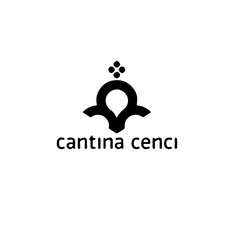
The Cenci Family has been dedicated to viticulture for over four generations, continuing to cultivate the vine with deep respect for the traditions and unique characteristics of the land once owned by the Olivetan monks. In the early 1950s, Mario—an enlightened and forward-thinking agricultural expert, and grandfather of Giovanni—selected clones of Grechetto, Sangiovese, and Malvasia from vines once cultivated by the Olivetan monks and traditionally grown intertwined with mulberry trees. He planted the first vineyards of the estate, and the wines made from those grapes were of such outstanding quality that he secured a long-term contract to supply Grechetto and Sangiovese in traditional flasks to the restaurant of a prestigious hotel in Perugia.
In 2012, following two years of renovation of the farmhouse, the new winery was inaugurated under the guidance of Mario Cenci, architect and brother of Giovanni. Thanks to cutting-edge equipment and winemaking techniques—combined with deep respect for tradition and the passionate leadership of Giovanni Cenci (viticulturist, enologist, food biotechnologist, and sommelier)—Cantina Cenci today produces wines appreciated by a niche audience of expert consumers.
The perfect balance between tradition and innovation has shaped a strong and distinctive brand identity.
Château de Montfaucon

Just across the Rhone river from the beautiful vineyards of Chateauneuf-du-Pape, the Lirac appellation extends itself on the low hills alongside the river. The history of Château de Montfaucon dates back to the 11th century when the castle's first tower was built. The castle's role in history was strategic; the Rhône River was the border between the French Kingdom and the Holy Roman German Empire. Montfaucon was one of many castles and fortresses along the Rhône River constructed to guard the border.
Rodolphe de Pins took over the family estate of Montfaucon in 1995 and subsequently rebuilt the winery and began practicing sustainable agriculture. He honed his winemaking skills in Barossa at Henschke and Vieux Telegraphe in Châteauneuf du Pape before returning to Lirac, so needless to say, his familiarity with the local varieties is well established.
Château Haut-Grelot
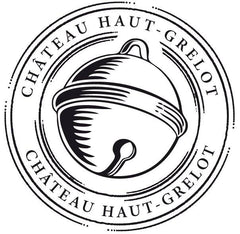
Château Haut Grelot is located in Saint Ciers Sur Gironde, approximately 50 kms north of Bordeaux, on the right bank of the Gironde Estuary. It was established by the Bonneau family in 1922 and now run but the 4th Generation. Today Château Haut-Grelot comprises 58 hectares of vineyards and is run by Céline and Julien, who was recently awarded the title 'Best Young Talent' in Bordeaux.
The vineyards are made up of sandy-gravel on the hillsides bordering the Gironde Estuary and sand-clay-silt on the hillsides further inland. Blaye Côtes de Bordeaux benefits from an ideal microclimate where there is a high level of sunshine and enough rain to guarantee the perfect environment for grape production. As a result the reds are fruity and concentrated and the whites are fresh, vibrant and delicate.
Conti Riccati
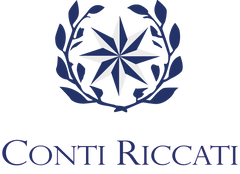 Conti Riccati is located in the rolling hills outside of Castelfranco, Veneto; in the province of Treviso. Their vineyards extend along 20 hectares inside a bigger property that has belonged to the Riccati family since the 14th century.
Conti Riccati is located in the rolling hills outside of Castelfranco, Veneto; in the province of Treviso. Their vineyards extend along 20 hectares inside a bigger property that has belonged to the Riccati family since the 14th century.Valperto Azzoni, his wife along and their four children are the direct descendants of the Riccati family and have the same enthusiasm and respect for the land, that their ancestors had in the past.
Conti Riccati grows mostly Glera, Pinot Gris and Pinot Noir though they are most known for their Prosecco.
The winemaker, Salvatore Lovo and the agronomist, Giovanni Pascarella take great pride in making the wines and tending the vineyards for the family. They practice sustainable viticulture and are currently in organic conversion.
Cortonesi

“I’m a lucky man who has been given the opportunity to realize my dream and continue my family’s efforts making wine in the land where I was born.” – Tommaso Cortonesi
Tommaso is third-generation winemaker at Cortonesi that owns some of the most prized vineyards in the north and south-east of Montalcino. Favourable geography, rocky soils, and ingenious winemaking all come together to create some of the region's deepest and most elegant Brunello wines.
The Cortonesi family has been making wine since the 1970s. At first, wines were made to be enjoyed by family, friends and neighbours, but then in 1985, Cortonesi had gained enough traction within their community that they began to offer their wines commercially. Today, Cortonesi remains a family business that continues to work according to tradition, while employing modern technologies to the enhance the quality of their production.
Lovers of Sangiovese must experience “La Mannella”, a collection of wines exclusively sourced from Cortonesi's private vine land. This farm covers 56 hectares, eight of which are devoted to the production of some of the world's most coveted and age-worthy Brunello di Montalcino.
Pearce Predhomme

Pearce Predhomme is a collaboration of like-minded individuals from around the globe. Founded with a mission to build and import wines from our favourite appellations while offering an unequaled value/quality ratio for the sommeliers & wine buyers in Ontario. This is a project between Toronto Sommelier and entrepreneur Will Predhomme and Ontario wine importer Nicholas Pearce. They have partnered with Radford Dale in South Africa and NorthWest Wine Co. in Oregon to create these special cuvées.
Vitas

The Vitas Winery has been in the family since 1935, for four generations. It is located in the wine-producing area of DOC Friuli Aquileia, on a clayey-marly and sandy-calcareous soil (the so-called Magredi), one of the ingredients which, together with the influence of the sea and a friendly sun, create a perfect microclimate for vine-growing. A lot of importance is placed on conserving the environment and they use methods that protect their natural resources and the surrounding environment
- Red Wine, White Wine
- Carignan, Chenin Blanc, Grenache, Sangiovese, Sauvignon Blanc, Syrah
- Sustainable
- Dry
- 750ml
About the Winery
Clos del Rey
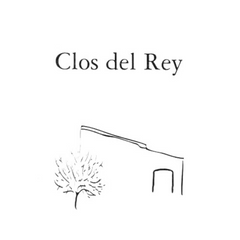 In the foothills of the Pyrénées Mountains, not far from the Mediterranean sea, Clos del Rey is situated in the high altitude hills over the tiny village of Maury. The estate has been owned and farmed by the Montagne family for generations. The vineyard itself is nestled among a protected area of garrigues (rosemary and thyme). The vines of up to 120 years old are allowed to grow natural and untrained, in the old-fashioned way, known as the goblet or bush style. However, it is what lies beneath the vineyard that lends much of the character and complexity found in their wines. Julien Montagne makes complex wines that truly represent his vineyards and his Catalan roots--you can almost smell the sun in the glass.
In the foothills of the Pyrénées Mountains, not far from the Mediterranean sea, Clos del Rey is situated in the high altitude hills over the tiny village of Maury. The estate has been owned and farmed by the Montagne family for generations. The vineyard itself is nestled among a protected area of garrigues (rosemary and thyme). The vines of up to 120 years old are allowed to grow natural and untrained, in the old-fashioned way, known as the goblet or bush style. However, it is what lies beneath the vineyard that lends much of the character and complexity found in their wines. Julien Montagne makes complex wines that truly represent his vineyards and his Catalan roots--you can almost smell the sun in the glass.
Pearce Predhomme

Pearce Predhomme is a collaboration of like-minded individuals from around the globe. Founded with a mission to build and import wines from our favourite appellations while offering an unequaled value/quality ratio for the sommeliers & wine buyers in Ontario. This is a project between Toronto Sommelier and entrepreneur Will Predhomme and Ontario wine importer Nicholas Pearce. They have partnered with Radford Dale in South Africa and NorthWest Wine Co. in Oregon to create these special cuvées.
Villa Calcinaia
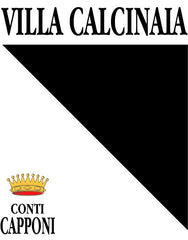
Villa Calcinaia is situated in the centre of Chianti Classico near the town of Greve-in-Chianti. This historic estate has been home to the Counts Capponi since 1524, and is maintained by Sebastiano Capponi and his brother Niccolo. In 1992, Count Sebastiano Capponi became the first in the history of the family to manage the winery personally, giving a new life to the vineyards and the cellar.
The family owns 200 hectares of land planted with olive trees, vines and pine trees. Organic farming is the standard at Villa Calcinaia where 75 acres of vineyard are planted with Sangiovese, Merlot, Canaiolo, Grechetto, Vernaccia, Trebbiano, and Malvasia. Through every vintage, the wines are crafted with food in mind. They are balanced, elegant, perfumed, and savoury yet refreshing with restrained vigour and intensity that ensures longevity.
- White Wine
- Chardonnay
- Sustainable, Vegan-Friendly
- Dry
- Medium Bodied
- 750ml
About the Winery
Domaine Baud Père et Fils

The history of Domaine Baud dates back to 1742, and it wasn't until 1950 when René Baud, the 7th generation, rebuilt the vineyard which had suffered from the phylloxera crisis and two World Wars.
Starting with only 4 hectares, the vineyard progressively expanded to 20 hectares with the help of successive generations. Now, managed by siblings Clémentine and Bastien, the 9th generation, the estate continues to flourish and grow, with a strong commitment to sustainable viticulture and preserving the traditions and style that makes the wines of the Jura so unique and incredible.
The estate achieved the Terra Vitis certification in 2014 for its eco-friendly work and environmental preservation.
- Sparkling Wine
- Pinot Noir, Poulsard
- Sustainable, Vegan-Friendly
- Dry
- Light Bodied
- 750ml
About the Winery
Domaine Baud Père et Fils

The history of Domaine Baud dates back to 1742, and it wasn't until 1950 when René Baud, the 7th generation, rebuilt the vineyard which had suffered from the phylloxera crisis and two World Wars.
Starting with only 4 hectares, the vineyard progressively expanded to 20 hectares with the help of successive generations. Now, managed by siblings Clémentine and Bastien, the 9th generation, the estate continues to flourish and grow, with a strong commitment to sustainable viticulture and preserving the traditions and style that makes the wines of the Jura so unique and incredible.
The estate achieved the Terra Vitis certification in 2014 for its eco-friendly work and environmental preservation.
- Red Wine, White Wine
- Chardonnay, Primitivo
- Sustainable
- Dry
- 750ml
- White Wine
- Furmint
- Organic, Sustainable, Vegan-Friendly, Volcanic
- Medium Bodied
- 750ml
- 12.5% alc./vol
About the Winery
Gilvesy Pincészet

Hungarian expat Róbert Gilvesy moved back to his homeland from Canada, and began building the Gilvesy winemaking empire on the former Esterházy estate on Szent György Hill. Thanks to years of hard work, the Hegymagas-based facility now includes a modern building complex and about 13 hectares of vineyards, in addition to being the home of the family. The area is shaped by 6 million years old volcanoes, where indigenous and international varieties grow organically.
Robert’s absolute admiration for nature and the terroir translates into an immense respect for the environment. By farming using organic practices, the soils and the vines stay healthy. In the winery, by letting nature take its course without controlling the processes, and using local resources, such as Hungarian oak barrels, Gilvesy promotes and protects the Balaton region.
- Red Wine, Rosé Wine, White Wine
- Lambrusco di Sorbara, Olaszrizling, Pinot Gris, Pinot Nero, Pinot Noir, Riesling, Sauvignon Blanc, Tempranillo, Trousseau
- Sustainable
- Dry
- 750ml
About the Winery
Bideona
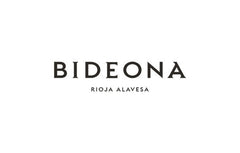
Bideona owns or manages over 300 parcels of extraordinary vines in villages throughout the Rioja Alavesa, the coolest, smallest and most Atlantic sub-zone of Spain’s most famous wine region.
The vineyards of the Rioja Alavesa are defined by parcels of old bush vines planted on terraces or hillside slopes with a high percentage of limestone. Located in the foothills of the Sierra Cantabria, Bideona’s vines have an average age of 50 years and many were planted in the 1920s, 30s and 40s, before high-yielding clones became available.
Bideona puts the focus firmly on terroir by making each wine in its Vino de Pueblo range as a field blend of Tempranillo and other native varieties from plots in an individual village. Each is named with an acronym – L3Z4 for Leza, L4GD4 for Laguardia, S4MG0 for Samaniego and V1BN4 for Villabuena – owing to DOCa Rioja regulations that only allow village names to be marked if both the winery and the vineyard are in the same location.
“Bideona’s reason for existence is to make wines that show the personality of the Rioja Alavesa and its historic wine villages” states company co-founder and director, Andreas Kubach MW. “We have access to a wealth of diverse plant material in our parcels of old vines, which we believe contributes to the complexity of the wines as well as the differences between villages.”
Domaine Baud Père et Fils

The history of Domaine Baud dates back to 1742, and it wasn't until 1950 when René Baud, the 7th generation, rebuilt the vineyard which had suffered from the phylloxera crisis and two World Wars.
Starting with only 4 hectares, the vineyard progressively expanded to 20 hectares with the help of successive generations. Now, managed by siblings Clémentine and Bastien, the 9th generation, the estate continues to flourish and grow, with a strong commitment to sustainable viticulture and preserving the traditions and style that makes the wines of the Jura so unique and incredible.
The estate achieved the Terra Vitis certification in 2014 for its eco-friendly work and environmental preservation.
Gilvesy Pincészet

Hungarian expat Róbert Gilvesy moved back to his homeland from Canada, and began building the Gilvesy winemaking empire on the former Esterházy estate on Szent György Hill. Thanks to years of hard work, the Hegymagas-based facility now includes a modern building complex and about 13 hectares of vineyards, in addition to being the home of the family. The area is shaped by 6 million years old volcanoes, where indigenous and international varieties grow organically.
Robert’s absolute admiration for nature and the terroir translates into an immense respect for the environment. By farming using organic practices, the soils and the vines stay healthy. In the winery, by letting nature take its course without controlling the processes, and using local resources, such as Hungarian oak barrels, Gilvesy promotes and protects the Balaton region.
- White Wine
- Chardonnay
- Sustainable
- Dry
- Medium Bodied
- 750ml
About the Winery
Cordero San Giorgio
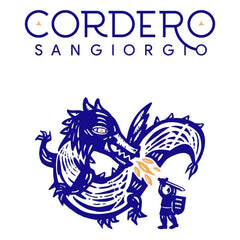
Cordero San Giorgio is a new beginning in Oltrépo-Pavese for three siblings who grew up surrounded by their family’s vines at the legendary Vietti Estate in Castiglione Falletto in Barolo. The siblings Francesco, Lorenzo, and Caterina Cordero, are grandchildren of Luciana Vietti & Alfredo Currado, one of the pioneers of the first Barolo crus and considered the “father of Arneis.” Their father is Mario Cordero, Alfredo and Luciana’s son-in-law, who was the company’s co-owner from the beginning of the ‘80s until 2016 when it was sold.
Cordero San Giorgio is located in Santa Giuletta, a village sitting on the first hilly belt of the territory, an area made up of valleys that fan out over the Po Valley with steep slopes and thick ridges. The composition of the soil makes their site particularly suitable for the production of Pinot Nero, making it possible to obtain wines with maximum varietal expression and a strong territorial identity.
The Oltrepò Pavese is a hilly triangle of land in Lombardy, embraced by Piedmont, Liguria, and Emilia-Romagna. A territory dedicated to the cultivation of vines and the culture of wine for centuries: a land of both cultural and gastronomic encounter and exchange. Cordero San Giorgio is in the town of Santa Giuletta, and focuses on working with Pinot Nero, Pinot Grigio and Chardonnay.
- Sparkling Wine, White Wine
- Sémillon
- Sustainable, Vegan-Friendly
- Dry
- Light Bodied
- 750ml
- 12.50% alc./vol
About the Winery
Château Haut-Grelot

Château Haut Grelot is located in Saint Ciers Sur Gironde, approximately 50 kms north of Bordeaux, on the right bank of the Gironde Estuary. It was established by the Bonneau family in 1922 and now run but the 4th Generation. Today Château Haut-Grelot comprises 58 hectares of vineyards and is run by Céline and Julien, who was recently awarded the title 'Best Young Talent' in Bordeaux.
The vineyards are made up of sandy-gravel on the hillsides bordering the Gironde Estuary and sand-clay-silt on the hillsides further inland. Blaye Côtes de Bordeaux benefits from an ideal microclimate where there is a high level of sunshine and enough rain to guarantee the perfect environment for grape production. As a result the reds are fruity and concentrated and the whites are fresh, vibrant and delicate.






















